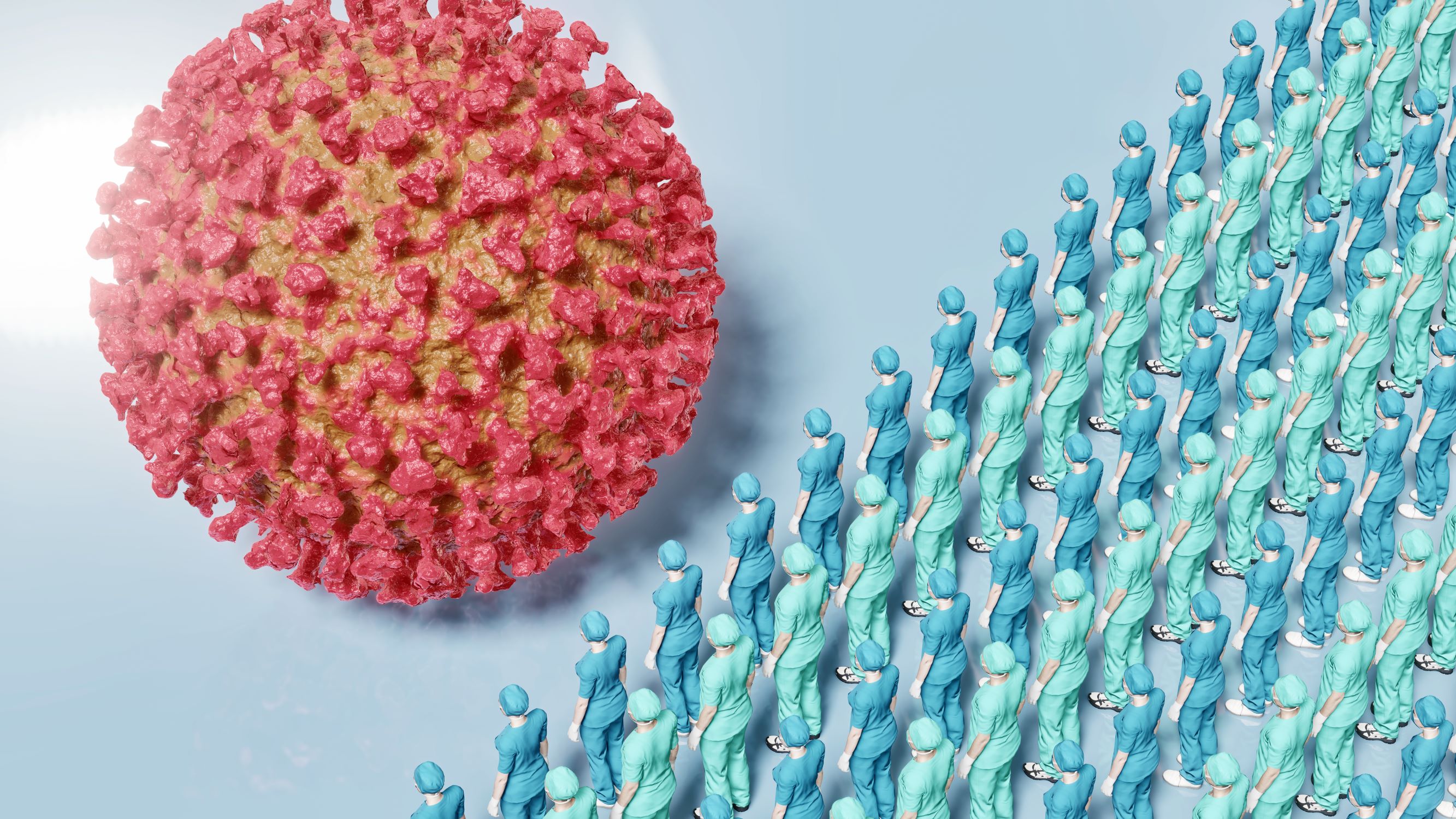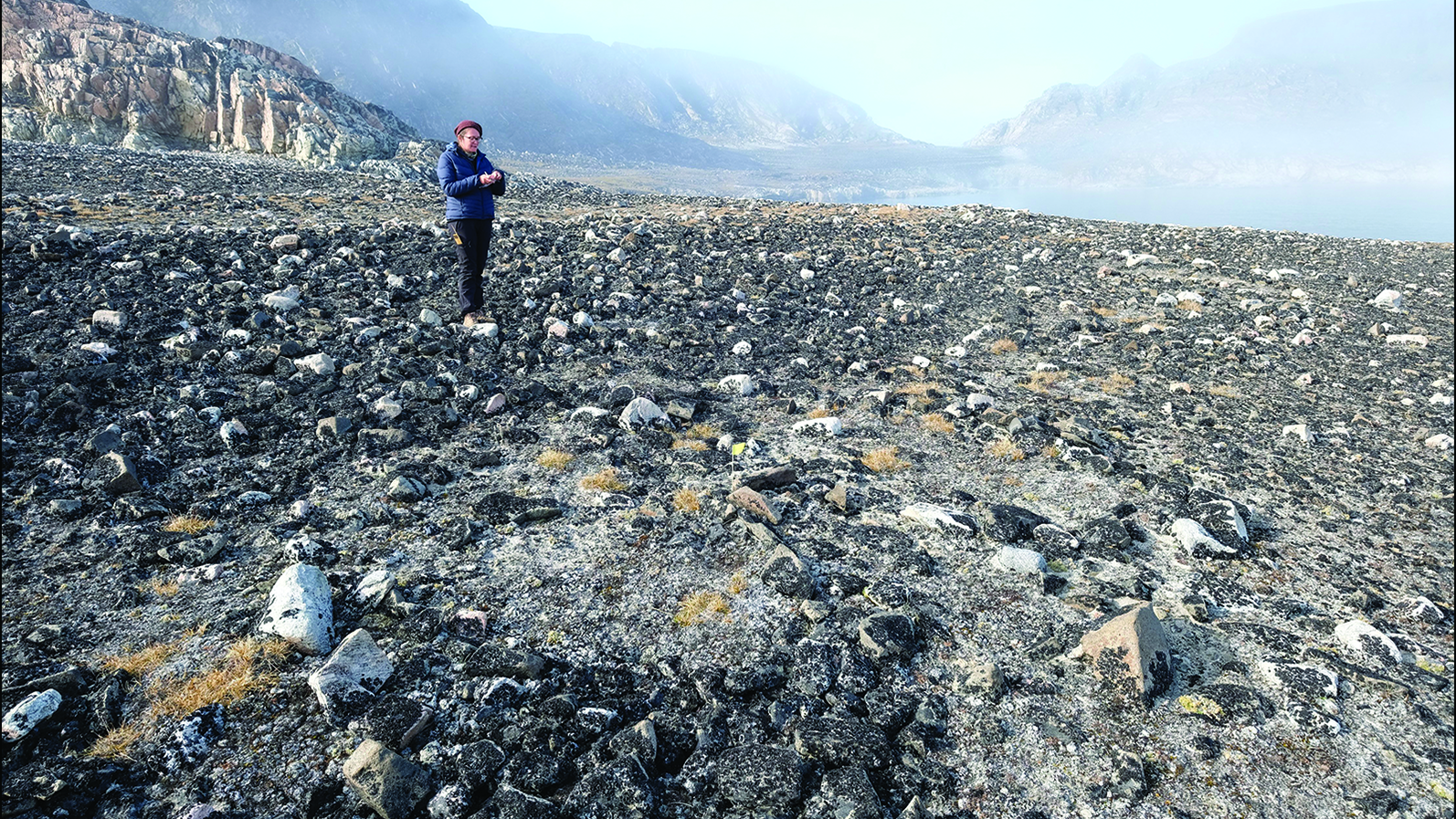Instead of just flattening the COVID-19 curve, can we 'crush' it?
Could we defeat COVID-19 in 10 weeks, rather than letting the pandemic beleaguer us for 18 months?

Get the world’s most fascinating discoveries delivered straight to your inbox.
You are now subscribed
Your newsletter sign-up was successful
Want to add more newsletters?

Delivered Daily
Daily Newsletter
Sign up for the latest discoveries, groundbreaking research and fascinating breakthroughs that impact you and the wider world direct to your inbox.

Once a week
Life's Little Mysteries
Feed your curiosity with an exclusive mystery every week, solved with science and delivered direct to your inbox before it's seen anywhere else.

Once a week
How It Works
Sign up to our free science & technology newsletter for your weekly fix of fascinating articles, quick quizzes, amazing images, and more

Delivered daily
Space.com Newsletter
Breaking space news, the latest updates on rocket launches, skywatching events and more!

Once a month
Watch This Space
Sign up to our monthly entertainment newsletter to keep up with all our coverage of the latest sci-fi and space movies, tv shows, games and books.

Once a week
Night Sky This Week
Discover this week's must-see night sky events, moon phases, and stunning astrophotos. Sign up for our skywatching newsletter and explore the universe with us!
Join the club
Get full access to premium articles, exclusive features and a growing list of member rewards.
Amid the coronavirus pandemic, many Americans have embraced the idea of "flattening the curve," or slowing the spread of the virus over a number of months so that fewer people become infected and need health care at any given time.
A key assumption of this strategy is that around the same number of people will eventually be infected with COVID-19, but just over a longer time period. Many models predict this period, which would require intermittent lockdowns, could last well over 18 months.
But one veteran public health scholar says we can take a different path to more swiftly and forcefully bring an end to COVID-19.
"The aim is not to flatten the curve," Dr. Harvey Fineberg, president of the Gordon and Betty Moore Foundation, a philanthropic organization in Palo Alto, California, and past president of the U.S. National Academy of Medicine, wrote in an editorial published Wednesday (April 1) in the New England Journal of Medicine. "The goal is to crush the curve."
Fineberg argues we can defeat COVID-19 in just 10 weeks if we take a "concerted and determined" approach.
"I think we're thinking too defensively about what we should and could do against the coronavirus," Fineberg told Live Science. "If it is a war, and I believe that's a proper metaphor, then we should fight it like a war. That means we should fight to win to vanquish the foe, not to let it persist and hassle us for an indefinite period."
—Coronavirus in the US: Map & cases
—What are coronavirus symptoms?
—How deadly is the new coronavirus?
—How long does coronavirus last on surfaces?
—Is there a cure for COVID-19?
—How does coronavirus compare with seasonal flu?
—How does the coronavirus spread?
—Can people spread the coronavirus after they recover?
Six steps to victory
In the editorial, Fineberg outlines six steps the country should take to accomplish this goal.
Get the world’s most fascinating discoveries delivered straight to your inbox.
First, President Donald Trump should appoint a commander in charge of the coronavirus response. This person is not a "coordinator," but rather someone who has the authority "to mobilize every civilian and military asset needed to win the war," Fineberg wrote. Each governor should also appoint a commander with similar authority at the state level.
"If we don't have a unified command structure with that person in charge who can help guide and make the strategic choices, then I think we can't execute successfully," Fineberg said.
Second, America needs to carry out millions of diagnostic tests in the next two weeks. Such a strategy was successfully used in South Korea to contain COVID-19. These tests are needed to "trace the scope of the outbreak" and make informed decisions about managing patients, he said. "Testing is our form of intelligence" in the military sense, Fineberg told Live Science.
Third, all health care workers should have access to ample supplies of personal protective equipment (PPE), Fineberg said. "We wouldn't send soldiers into battle without ballistic vests; health workers on the front lines of this war deserve no less."
Next, the population should be divided into five groups, Fineberg said. These include those infected with COVID-19; those presumed to be infected based on symptoms but who initially test negative; those exposed to someone with COVID-19; those who are not known to have been exposed to or infected with COVID-19; and those who recover from COVID-19.
People in the first two groups can be hospitalized — if they are very sick — or placed in "infirmaries" (such as a converted convention centers) if they have mild to moderate disease, he said. People who have been exposed to COVID-19, but don't yet show symptoms, may be quarantined in hotels for two weeks.
Finally, those who have recovered from COVID-19, and are, in theory, immune, may be able to go back to work. This category, which would require the use of antibody-based tests to identify, "would be a game-changer in restarting parts of the economy more quickly and safely," Fineberg said. Researchers in Germany have already started a large study to find out how many people in the country are immune to COVID-19, which could allow officials to issue "immunity passes" to allow people to return to work, The Guardian reported.
Fifth, intense efforts should be made to "mobilize the public" in the fight against coronavirus. "Everyone has a part to play and virtually everyone is willing," Fineberg wrote. For example, the U.S. postal service and other delivery companies could deliver surgical masks and hand sanitizer to every American household, Fineberg said. If everyone wears a mask, people who are infected but don't yet show symptoms would be less likely to spread the disease, he added.
And sixth, researchers should continue fundamental, "real-time" research into COVID-19 to examine questions such as who is at higher risk of death from the disease and whether those who haven't yet caught the virus could safely return to work under certain conditions.
It will also be critical to learn from our experiences in real time — for example, when we start to open up parts of the economy in different parts of the country — and adjust responses accordingly.
"Different communities will be at different stages of success and readiness," Fineberg said. We can see how well and safely certain strategies are working and then "crank it up more widely throughout the country."
Major challenges
Fineberg acknowledged that "all these things, everything I'm describing is hard to do and has many pitfalls in execution." But the alternative to not trying is the "catastrophe that's unfolding before us."
Dr. Courtney Gidengil, a senior physician policy researcher at RAND Corp. and a pediatric infectious disease specialist in Boston, said the editorial is an "interesting article and framework" for what needs to be done to address COVID-19. "These are really thoughtful and important steps that should already be under consideration."
"In a perfect world if we could undertake these steps aggressively and immediately that would give us the best chance" of crushing the curve, Gidengil said.
But the big question is how feasible it is to get these things to happen quickly enough to make a difference. "The more quickly these steps are implemented" the closer we'll be to achieving the goal, she said.
Another major challenge is the risk of having the virus come back into the country from another part of the world. "In terms of truly containing it, we really need high levels of immunity" against the virus, Gidengil said. Immunity could come through a vaccine (which is likely at least a year away) or through recovered patients. "Because we live in such a globalized world, it's just very difficult to guarantee the virus won't be imported again."
David Hutton, an associate professor of health management and policy at the University of Michigan School of Public Health, agreed that "to really 'defeat' this in the long term and get back to 'business as usual' … we will need a highly effective treatment or a vaccine." Until the virus is totally controlled on a global scale "constant vigilance" is needed, he said.
Hutton does think it's possible to re-open the economy by June, as China is beginning to do. But he noted that strict measures are still in place there, including temperature checkpoints and surveillance applications on people's phones. Such measures could be more challenging in the United States, where people may be less willing to share private information, he said.
Another important issue is that, even if we get the number of infections down so that containment is possible, we will need an "army of efficient, effective public health workers" to perform contact tracing, Hutton said. This involves tracking down contacts of patients, testing and isolating them, "to stop this virus from spreading like wildfire again," he said.
However, as Live Science previously reported, one company is working on building a voluntary app that can use location data to automatically notify other users if someone near them tests positive. If widely adopted, it could potentially cut down the work for such public health workers.
- The 9 deadliest viruses on Earth
- 28 devastating infectious diseases
- 20 of the worst epidemics and pandemics in history
Originally published on Live Science.
The one-month trial gives you access to all of the educational site's 9,000 activities in reading, science, math and art. Keep your child busy and learning while we are all stuck indoors.

Rachael is a Live Science contributor, and was a former channel editor and senior writer for Live Science between 2010 and 2022. She has a master's degree in journalism from New York University's Science, Health and Environmental Reporting Program. She also holds a B.S. in molecular biology and an M.S. in biology from the University of California, San Diego. Her work has appeared in Scienceline, The Washington Post and Scientific American.
 Live Science Plus
Live Science Plus











